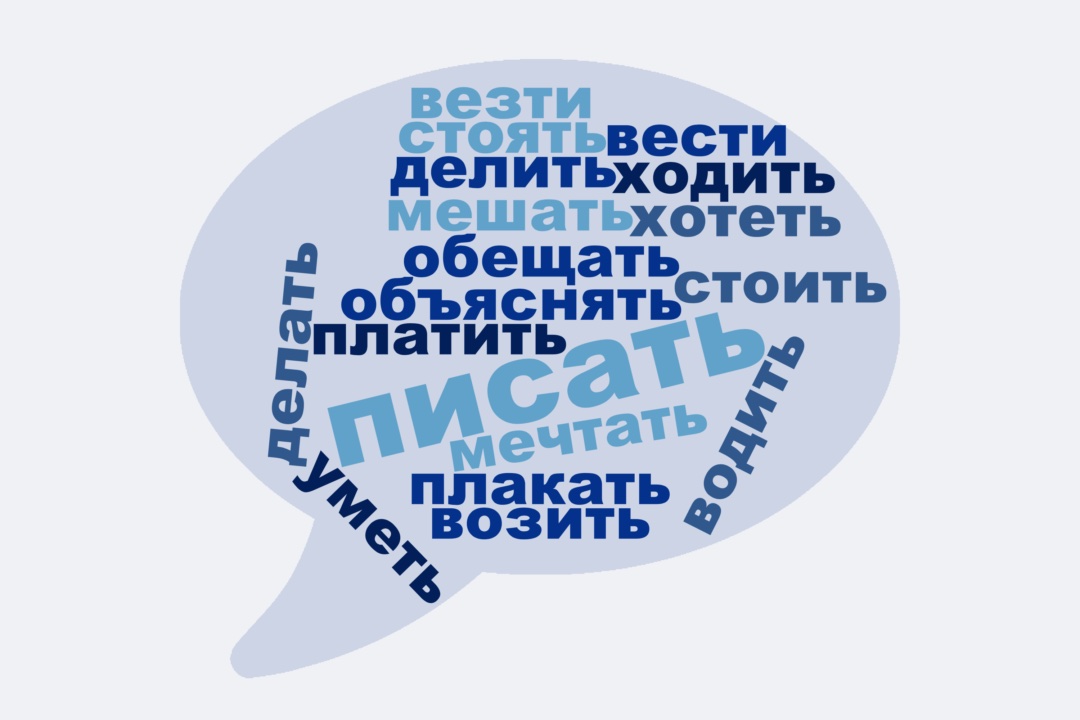Anyone who is studying Russian knows one of the biggest challenges is mastering verbs. Russian verbs pose a number of difficulties, which is not to say that Russian grammar is impossibly complicated, but it does require quite a bit of dedication, perseverance, and hard work on the part of the learner. Of course, there are first and second conjugations to get down, the concept of verbal aspects (imperfective and perfective) and how to use them, not to mention countless irregular or unpredictable forms. But when I started learning Russian, I found that several common verbs which resemble other verbs continued to trip me up… and sometimes still do. These pairs of verbs have similar sound patterns, but distinct conjugations and meanings. Let’s take a look at some of these odd couples.
The verbs listed below are imperfective. The present tense forms are given in the tables; the past tense forms are also given when they also pose confusions.
1. стоить (to cost, to be worth) vs. стоять (to stand)
| сто́ить | стоя́ть | |
|---|---|---|
| я | сто́ю | стою́ |
| ты | сто́ишь | стои́шь |
| он/она́/оно́ | сто́ит | стои́т |
| мы | сто́им | стои́м |
| вы | сто́ите | стои́те |
| они́ | сто́ят | стоя́т |
The conjugated forms are identical in writing, but not in speech. Notice which syllable the stress lies in for each verb.
2. платить (to pay) vs. плакать (to cry)
| плати́ть | пла́кать | |
|---|---|---|
| я | плачу́ | пла́чу |
| ты | пла́тишь | пла́чешь |
| он/она́/оно́ | пла́тит | пла́чет |
| мы | пла́тим | пла́чем |
| вы | пла́тите | пла́чете |
| они́ | пла́тят | пла́чут |
The only easily confused words here are the first-person forms. Notice the stress.
3. писать (to write) vs. писать (to pee)
| писа́ть | пи́сать | |
|---|---|---|
| я | пишу́ | пи́саю |
| ты | пи́шешь | пи́саешь |
| он/она́/оно́ | пи́шет | пи́сает |
| мы | пи́шем | пи́саем |
| вы | пи́шете | пи́саете |
| они́ | пи́шут | пи́сают |
| past m. | писа́л | пи́сал |
| past f. | писа́ла | пи́сала |
| past nt. | писа́ло | пи́сало |
| past pl. | писа́ли | пи́сали |
Be sure to use the irregular present-tense conjugation for ‘write’. Be sure to stress the correct syllable in the infinitive and in past tense forms. Otherwise, you might get a few laughs!
4. ходить (to go) vs. хотеть (to want)
| ходи́ть | хоте́ть | |
|---|---|---|
| я | хожу́ | хочу́ |
| ты | хо́дишь | хо́чешь |
| он/она́/оно́ | хо́дит | хо́чет |
| мы | хо́дим | хоти́м |
| вы | хо́дите | хоти́те |
| они́ | хо́дят | хотя́т |
| past m. | ходи́л | хоте́л |
| past f. | ходи́ла | хоте́ла |
| past nt. | ходи́ло | хоте́ло |
| past pl. | ходи́ли | хоте́ли |
5. иметь (to have, to possess) vs. уметь (to be able to)
| име́ть | уме́ть | |
|---|---|---|
| я | име́ю | уме́ю |
| ты | име́ешь | уме́ешь |
| он/она́/оно́ | име́ет | уме́ет |
| мы | име́ем | уме́ем |
| вы | име́ете | уме́ете |
| они́ | име́ют | уме́ют |
6. возить (to transport, to carry) vs. водить (to drive, to lead)
| вози́ть | води́ть | |
|---|---|---|
| я | вожу́ | вожу́ |
| ты | во́зишь | во́дишь |
| он/она́/оно́ | во́зит | во́дит |
| мы | во́зим | во́дим |
| вы | во́зите | во́дите |
| они́ | во́зят | во́дят |
These verbs are both multi-directional verbs of motion.
7. везти (to transport, to carry) vs. вести (to drive, to lead)
| везти́ | вести́ | |
|---|---|---|
| я | везу́ | веду́ |
| ты | везёшь | ведёшь |
| он/она́/оно́ | везёт | ведёт |
| мы | везём | ведём |
| вы | везёте | ведёте |
| они́ | везу́т | веду́т |
| past m. | вёз | вёл |
| past f. | везла́ | вела́ |
| past nt. | везло́ | вело́ |
| past pl. | везли́ | вели́ |
These verbs are both uni-directional equivalents of the verbs in section 6.
8. мечтать (to dream) vs. мешать (to bother, to mix)
| мечта́ть | меша́ть | |
|---|---|---|
| я | мечта́ю | меша́ю |
| ты | мечта́ешь | меша́ешь |
| он/она́/оно́ | мечта́ет | меша́ет |
| мы | мечта́ем | меша́ем |
| вы | мечта́ете | меша́ете |
| они́ | мечта́ют | меша́ют |
9. обещать (to promise) vs. объяснять (to explain)
| обеща́ть | объясня́ть | |
|---|---|---|
| я | обеща́ю | объясня́ю |
| ты | обеща́ешь | объясня́ешь |
| он/она́/оно́ | обеща́ет | объясня́ет |
| мы | обеща́ем | объясня́ем |
| вы | обеща́ете | объясня́ете |
| они́ | обеща́ют | объясня́ют |
10. делать (to do) vs. делить (to divide)
| де́лать | дели́ть | |
|---|---|---|
| я | де́лаю | делю́ |
| ты | де́лаешь | де́лишь |
| он/она́/оно́ | де́лает | де́лит |
| мы | де́лаем | де́лим |
| вы | де́лаете | де́лите |
| они́ | де́лают | де́лят |
| past m. | де́лал | дели́л |
| past f. | де́лала | дели́ла |
| past nt. | де́лало | дели́ло |
| past pl. | де́лали | дели́ли |








Just discovered this site. Thank you..!
very useful. thanks for this